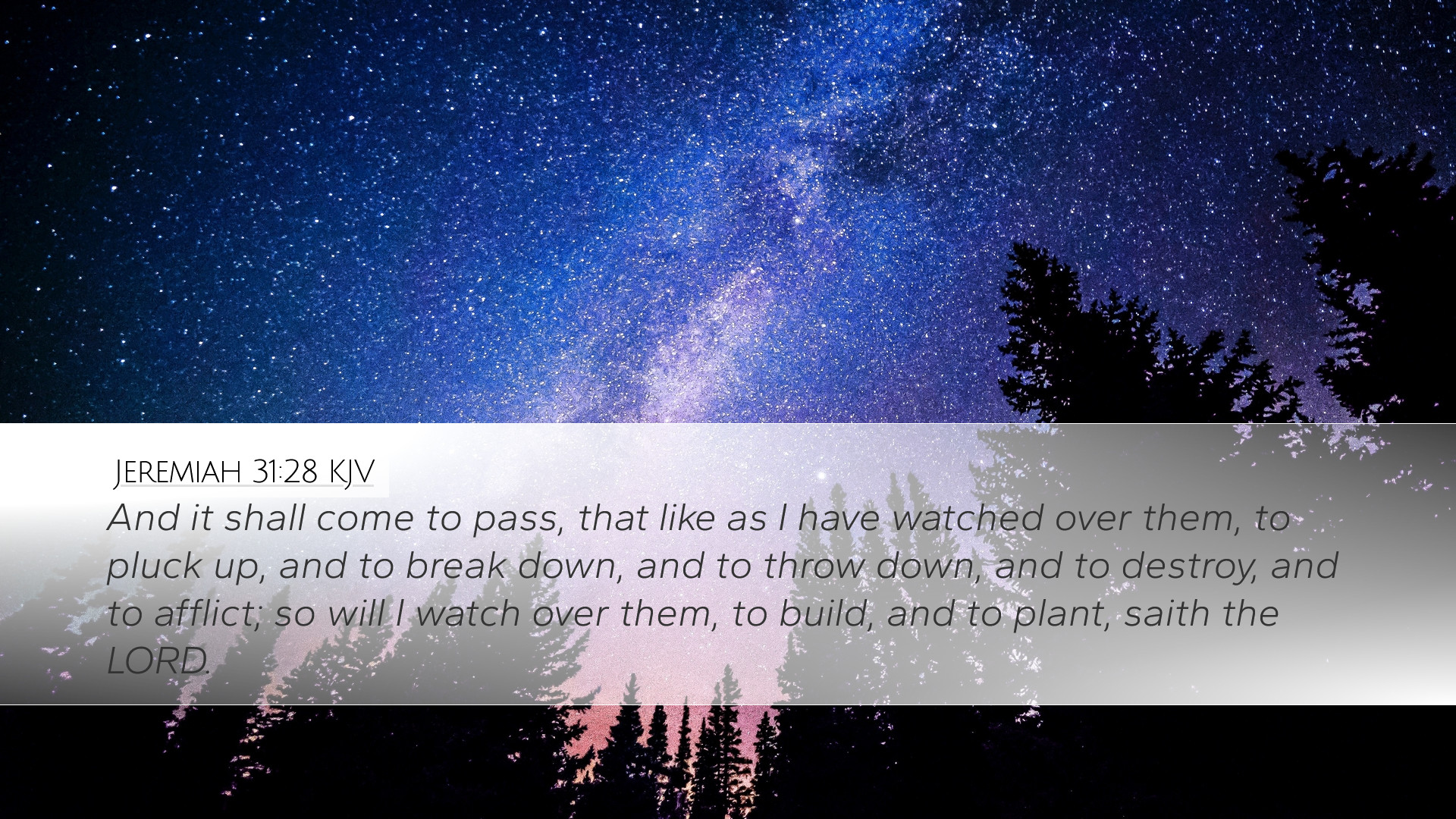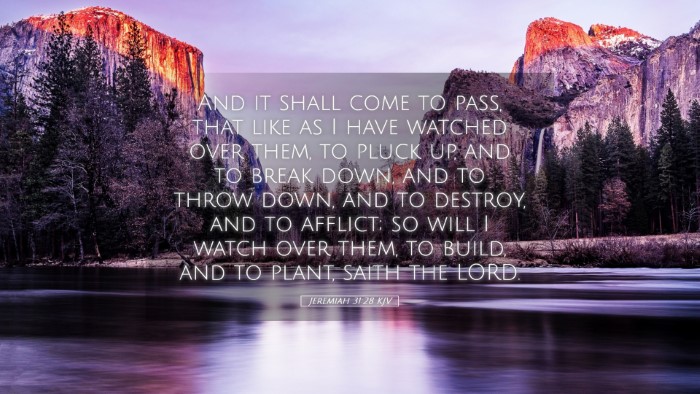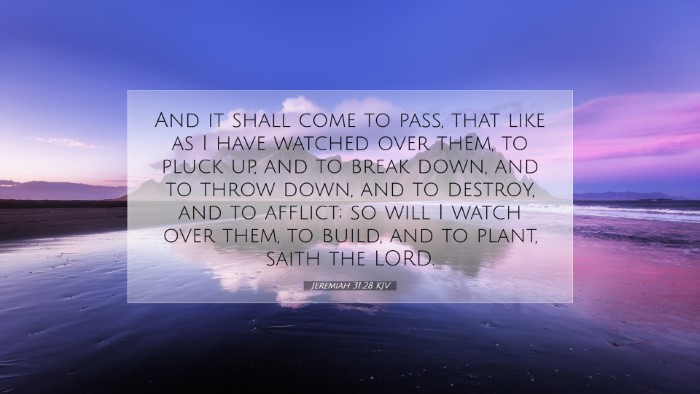Commentary on Jeremiah 31:28
Jeremiah 31:28 states, "And it shall come to pass, that like as I have watched over them to pluck up, and to break down, and to throw down, and to destroy, and to afflict; so will I watch over them to build, and to plant, saith the LORD." This verse encapsulates a significant theological transition regarding God’s relationship with Israel, focusing on His sovereign will in both judgment and restoration.
Contextual Background
The Book of Jeremiah speaks predominantly about God’s impending judgment on Judah due to their persistent disobedience and idolatry. However, this passage heralds a promise of restoration. Jeremiah writes during a tumultuous time and encapsulates the dual nature of God’s dealings with His people—encompassing both destruction for sin and restoration through grace.
Thematic Analysis
This verse presents profound themes that are critical for understanding the nature of God in redemptive history. In the first part, God recounts the processes of judgment: plucking up (removal of unrighteousness), breaking down (demolishing high places of idolatry), throwing down (total destruction of the nation’s structures of sin), destroying (a more fulsome annihilation), and afflicting (bringing suffering as consequence of sin). This is followed by an assurance of His diligence in building and planting—a profound expression of divine restoration.
1. Divine Oversight
Matthew Henry emphasizes God’s active management over Israel’s fate. He suggests that just as God observed and intervened in their downfall, He will equally oversee the process of building them up once again. This duality emphasizes God’s sovereignty as both a judge and a redeemer.
2. Judgement and Restoration
Albert Barnes elaborates on the significance of the sequential actions in the verse. He notes that destruction often precedes restoration. The plucking and breaking down of disobedience make way for the establishment of a new covenant, where God promises to redeem His people from their failures. This highlights the notion that God’s disciplinary actions, although painful, serve a redemptive purpose.
3. Covenant Faithfulness
Adam Clarke provides a detailed exposition on the implications of this divine promise. He points out that, despite Israel's unfaithfulness, God remains steadfast in His covenantal promises. This divine faithfulness assures believers that no matter how far they stray, restoration is always possible through sincere repentance. Clarke’s insights reveal that God’s intentions are not merely punitive but are filled with the hope of renewal.
The Role of the Prophet
As a prophet, Jeremiah's role is pivotal in communicating these themes. He is tasked with reminding the people of God’s nature—emphasizing both His justice and mercy. His ministry serves as a bridge that conveys God’s judgment while also offering the hope of redemption, reinforcing the comprehensive nature of God’s plan for Israel.
Application for Today
For modern-day clergy, scholars, and students of the Bible, this verse encourages a deep reflection on the nature of God’s governance over human affairs. It urges introspection on the necessary consequences of disobedience in both personal and communal contexts:
- Understanding God’s Sovereignty: Recognizing that God is always at work, whether in judgment or restoration.
- Hope Through Repentance: Encouraging congregations to embrace the possibility of healing and renewal regardless of their past failures.
- Commitment to Faithfulness: Challenging believers to remain faithful to their covenant with God, drawing upon the promise that He is always watching over them.
Conclusion
In conclusion, Jeremiah 31:28 intricately weaves together the themes of judgment and restoration that demonstrate the holistic nature of God’s interaction with His people. The verse serves as a reminder of God’s just nature while simultaneously holding forth the promise of hope and rebuilding. God’s promise to watch over His people is a powerful declaration that reassures us of His unwavering commitment to not just discipline, but also to bless and restore.


